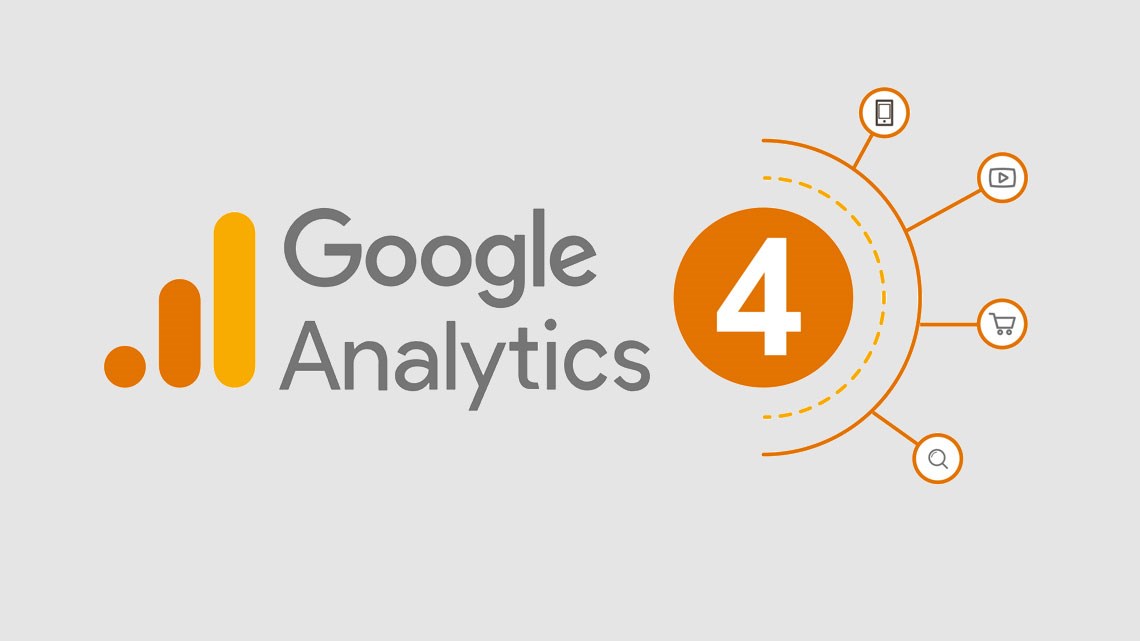Google Analytics 4 (GA4) is the latest version of Google's web analytics platform. It is designed to provide businesses and website owners with advanced insights and measurement capabilities in the evolving digital landscape. GA4 represents a significant update and shift from its predecessor, Universal Analytics.
Here are some key features and characteristics of Google Analytics 4:
1. Event-Based Tracking: GA4 utilizes an event-driven data model, which focuses on tracking user interactions and events across websites and apps. Events can include actions such as pageviews, clicks, video plays, downloads, form submissions, and more. This approach offers more flexibility in tracking user behavior and provides a more comprehensive understanding of user engagement.
2. Enhanced Cross-Platform Tracking: GA4 is built to support cross-platform tracking, allowing businesses to analyze user behavior across multiple devices and platforms, including websites, mobile apps, and even offline interactions. This enables a more holistic view of user journeys and interactions, regardless of the devices or channels they use.
3. Machine Learning and AI Capabilities: GA4 incorporates advanced machine learning and artificial intelligence (AI) capabilities to provide businesses with automated insights and predictive analytics. It can automatically identify trends, anomalies, and opportunities, helping businesses make data-driven decisions more efficiently.
4. User-Centric Measurement: GA4 focuses on understanding user behavior at an individual level, rather than relying solely on aggregate data. It introduces a concept called "User ID" that enables businesses to track and analyze user interactions across sessions and devices, providing a better understanding of user engagement and lifetime value.
5. Simplified Reporting and Analysis: GA4 offers a simplified and more intuitive reporting interface compared to Universal Analytics. It provides prebuilt reports and analysis tools that are easier to navigate, helping businesses quickly access the data and insights they need. Customization options are also available to create tailored reports and segments.
6. Privacy and Data Control: Google Analytics 4 puts more emphasis on user privacy and data control. It is designed to align with evolving privacy regulations and offers features like data deletion controls, consent mode, and data retention settings to give businesses more control over how data is collected and stored.
7. Streamlined Conversion Tracking: GA4 introduces a simplified conversion tracking model called "Events as Goals." Instead of setting up separate goals and funnels, businesses can define specific events as conversion points and track their completion. This flexible approach allows for easier and more precise tracking of key actions that indicate user engagement and conversions.
8. Expanded Data Analysis Tools: GA4 offers expanded data analysis tools to help businesses gain deeper insights. This includes the Exploration tool, which allows for ad hoc analysis by dragging and dropping dimensions and metrics, and the Analysis Hub, which provides preconfigured templates and advanced analysis techniques, such as cohort analysis, path analysis, and segment overlap.
9. Integration with Google Ads and other Google Marketing Platforms: GA4 integrates seamlessly with Google Ads and other Google Marketing Platforms, allowing businesses to gain a more comprehensive view of their marketing campaigns and performance. It enables deeper analysis of the customer journey from ad impression to conversion, and provides insights into the effectiveness of advertising efforts.
10. Enhanced E-commerce Tracking: GA4 provides improved e-commerce tracking capabilities, making it easier for businesses to analyze online sales and revenue. It offers built-in e-commerce reports, tracks product performance, and provides insights into the entire customer journey, including product views, adds to cart, and purchases.
11. Smarter Insights and Predictions: GA4 leverages machine learning algorithms to provide smarter insights and predictions. It can automatically alert businesses to significant changes in their data, identify potential opportunities for optimization, and predict future user behavior. These AI-driven features save time and help businesses make data-driven decisions more effectively.
12. Data Export and BigQuery Integration: GA4 enables businesses to export their data to BigQuery, Google's cloud-based data warehouse. This integration allows for more advanced data analysis, combining Google Analytics data with other data sources, and leveraging BigQuery's processing power for complex queries and analysis.
13. App and Web Combined Reporting: GA4 combines app and web data into a single reporting view, providing a unified view of user behavior across different digital touchpoints. This integrated reporting helps businesses understand how users engage with their brand across platforms and allows for more accurate analysis of user behavior.
Google Analytics 4 represents Google's vision for the future of web analytics, with a focus on privacy, user-centric measurement, and advanced analysis capabilities. Businesses are encouraged to explore and migrate to GA4 to take advantage of its features and ensure they have a solid foundation for their data-driven decision-making processes.
It's important to note that while Google Analytics 4 offers numerous benefits and enhancements, it's still in its early stages of adoption and doesn't completely replace Universal Analytics. Many businesses continue to use Universal Analytics alongside GA4 during the transition period.
To implement Google Analytics 4, a new property needs to be created in the Google Analytics interface, and a new tracking code snippet or software development kit (SDK) is required for data collection.
